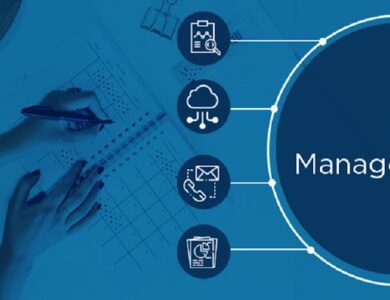Smarter Software, Better Results: The Future of Business Intelligence

In today’s fast-paced digital landscape, businesses need to leverage intelligent software solutions to stay competitive. From data analytics to artificial intelligence (AI)-powered automation, smarter software is revolutionizing industries by delivering better results, improving efficiency, and enhancing decision-making.
One of the biggest transformations in business intelligence comes from location intelligence software. These tools help businesses make data-driven decisions by analyzing geographic data, customer behavior, and market trends. For example, companies in the food industry can utilize location-based insights to determine the best places to open new restaurants. But just how many restaurants exist in America? You can find out through this restaurants and cafe database for the United States, which provides comprehensive insights into the food industry landscape.
Why Businesses Need Smarter Software
1. Enhanced Decision-Making Through AI and Machine Learning
AI-powered software allows businesses to process large volumes of data in real-time, identifying trends and predicting future outcomes. Machine learning algorithms can analyze customer preferences, optimize marketing campaigns, and automate customer service interactions.
For example, an e-commerce company can use AI to analyze purchasing patterns and recommend products to customers, increasing sales and customer satisfaction. Similarly, logistics companies can use predictive analytics to optimize delivery routes, reducing costs and improving efficiency.
2. Location Intelligence for Strategic Growth
Location intelligence software is crucial for businesses looking to expand. By analyzing location-based data, companies can identify high-traffic areas, understand competitor strategies, and assess customer demographics. This helps in making informed decisions about site selection, marketing strategies, and operational efficiency.
For instance, restaurant chains can use location intelligence to determine where to open new locations based on customer foot traffic, competition, and local market demand. A tool like how many restaurants in America provides valuable insights into the food industry landscape, helping businesses make data-driven expansion decisions.
3. Automation for Efficiency and Productivity
Automation is another game-changer. Businesses that integrate intelligent automation tools can streamline operations, reduce human error, and increase productivity. Examples include:
- Chatbots and Virtual Assistants: Automate customer service, reducing response times and improving user experience.
- Robotic Process Automation (RPA): Handles repetitive tasks such as data entry, invoice processing, and report generation.
- Automated Marketing Campaigns: AI-driven marketing tools personalize content, automate email campaigns, and analyze customer interactions.
By reducing manual labor, companies can focus on higher-value tasks like strategy development and customer engagement.
The Role of Data Analytics in Business Growth
Data analytics is at the core of smarter software solutions. It enables businesses to:
- Identify patterns and trends in customer behavior
- Improve decision-making with real-time insights
- Optimize supply chains and inventory management
- Reduce operational costs by identifying inefficiencies
For example, retail companies use predictive analytics to manage inventory levels and avoid stock shortages. Healthcare providers leverage data to improve patient care, while financial institutions detect fraudulent activities in transactions.
Industries Benefiting from Smarter Software
1. Retail and E-Commerce
Retailers use AI-powered analytics to track customer behavior, optimize pricing strategies, and enhance the shopping experience. Recommendation engines, personalized marketing, and real-time inventory management are just a few ways smarter software is transforming this sector.
2. Healthcare
The healthcare industry benefits from AI-driven diagnostics, predictive analytics, and automated administrative processes. Smart software helps doctors diagnose diseases faster, optimize patient care, and streamline hospital operations.
3. Manufacturing
Manufacturers use automation and AI-driven quality control to improve production efficiency and reduce defects. Predictive maintenance ensures machines are serviced before they break down, minimizing downtime and reducing costs.
4. Finance and Banking
Banks and financial institutions rely on AI-powered fraud detection, automated trading, and personalized banking services. Intelligent chatbots and virtual assistants enhance customer support, while predictive analytics improve risk management.
5. Logistics and Supply Chain
Companies in logistics use AI to optimize delivery routes, predict delays, and automate warehouse operations. This leads to faster deliveries, lower transportation costs, and better customer satisfaction.
How to Choose the Right Smart Software for Your Business
Selecting the right software depends on business goals, industry requirements, and scalability needs. Consider the following factors:
- Scalability: Ensure the software can grow with your business.
- Integration: It should seamlessly integrate with existing systems.
- User-Friendliness: Easy-to-use interfaces improve adoption rates.
- Security: Data protection and compliance should be a priority.
- Cost vs. ROI: Invest in software that delivers measurable value.
The Future of Business Intelligence
The rise of AI, machine learning, and automation is reshaping industries worldwide. Businesses that adopt smarter software gain a competitive edge by improving efficiency, enhancing customer experiences, and making data-driven decisions.
As technology continues to evolve, companies must embrace innovative solutions to stay ahead in the market. Whether it’s leveraging location intelligence, AI-driven analytics, or automation, smarter software leads to better results, greater efficiency, and long-term success.



